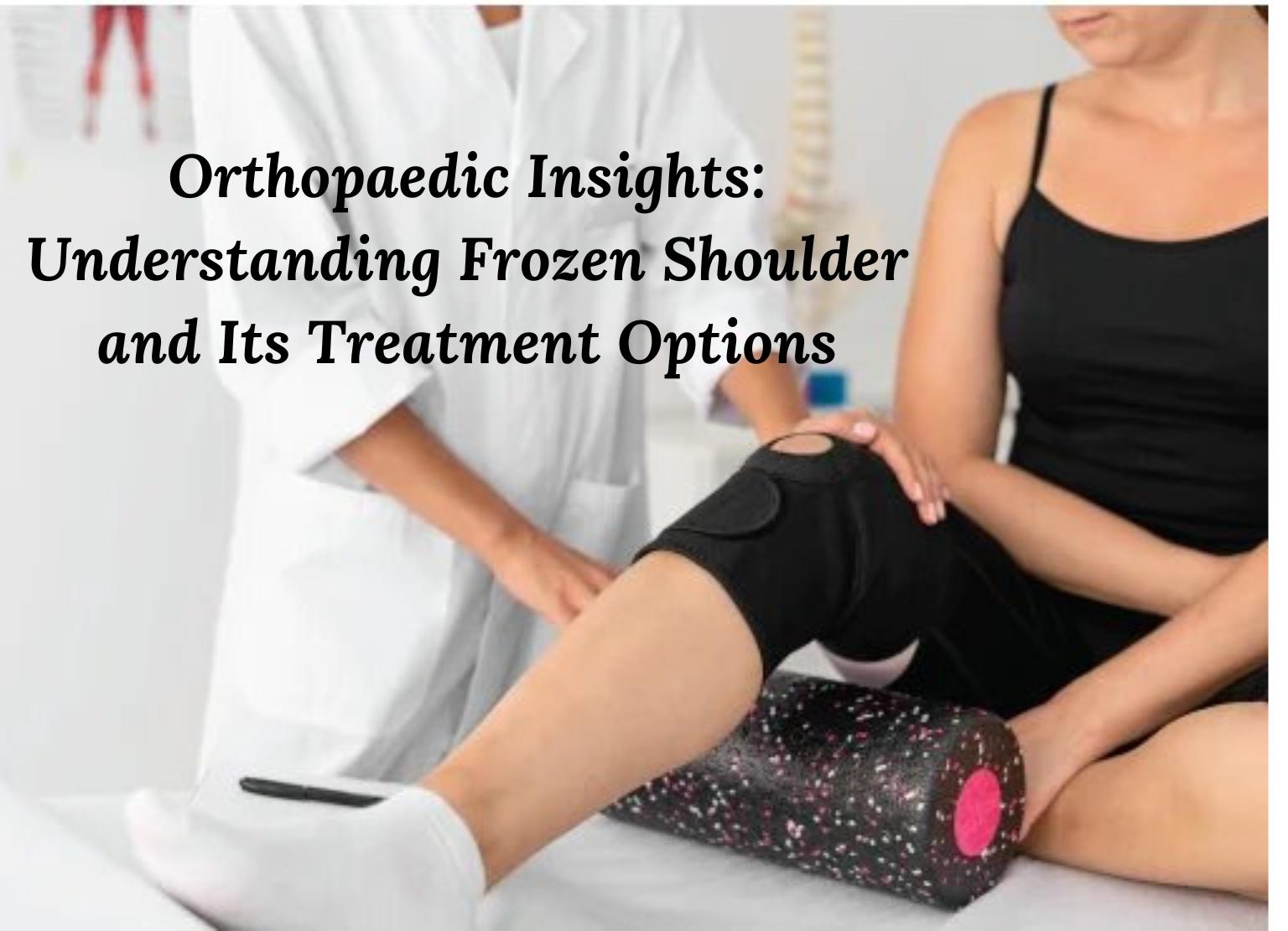Orthopaedic Insights: Understanding Frozen Shoulder and Its Treatment Options

A frozen shoulder is a condition affecting the shoulder joint, making it stiff and very painful. The pain tends to increase with time, and usually, individuals face much difficulty moving their arms. If you are suffering from this kind of condition, finding a Best Orthopaedic Clinic in Gachibowli will surely guide you in getting a proper diagnosis and a well-structured treatment procedure. In short, a frozen shoulder can seriously affect your daily activities, but with proper care, relief can still be achieved.
What is a Frozen Shoulder?
Frozen shoulder, also known as adhesive capsulitis, occurs when the shoulder joint becomes inflamed, leading to stiffness and pain. The condition typically progresses in three stages:
-
Freezing Phase: This is where the pain starts, and the shoulder stiffens.
-
Frozen Stage: The pain will reduce, but the shoulder is still stiff and unmovable.
-
Thawing Stage: The stiffness begins to improve, and the shoulder regains its range of motion.
While developing a frozen shoulder can occur to anyone, it is more common with people aged 40-60 years and people who have diabetes and other conditions.
Symptoms of Frozen Shoulder
The most obvious symptom is the inability to move the shoulder freely due to pain and stiffness. Other signs include:
-
Gradual pain that worsens at night.
-
Difficulty raising your arm or rotating the shoulder.
-
Aching pain in the upper arm or the shoulder joint.
These symptoms can interfere with your daily activities, such as reaching overhead or even sleeping comfortably.
Causes and Risk Factors
Frozen shoulder has not yet been known for a definite cause, but some factors can lead to its risk of occurrence, include:
-
Injury or Surgery: An injury or surgery in the shoulder can sometimes cause frozen shoulder.
-
Diabetes: People with diabetes are more prone to developing frozen shoulder.
-
Age: It is most common among people between 40 and 60 years old.
-
Other Medical Conditions: Conditions such as thyroid disorders, heart disease, and Parkinson’s disease can also increase the risk.
If you are experiencing any of these risk factors or symptoms, then you must seek a specialist at the best Orthopaedic clinic in order to acquire an accurate diagnosis along with the treatment plan which is most suitable for you.
Treatment Options for Frozen Shoulder
There are a variety of treatments for frozen shoulder, which can vary from mild to severe in their presentation. These generally reduce pain and enhance mobility with a recovery of the shoulder's range of motion.
Non-Surgical Treatments
-
Physiotherapy: The most effective, non-surgical treatment for frozen shoulder is physiotherapy. A trained physiotherapist can design a programme that comprises gentle exercises to be gradually performed to facilitate restoration of movement. The physiotherapy clinic provides specialized care for frozen shoulder with the goal of reducing pain and restoring range in patients. If physiotherapy is recommended, you can benefit from the specialized services at a good Physiotherapy Clinic in Gachibowli, like Jade Clinics that ensure a holistic approach to your recovery.
-
Medications: Nonsteroidal anti-inflammatory drugs (NSAIDs) can be used to reduce pain and inflammation.
-
Corticosteroid Injections: If the pain is severe, corticosteroid injections may help reduce inflammation in the joint.
-
Heat and Cold Therapy: The application of hot or cold packs to the shoulder can relieve pain and stiffness.
Surgical Treatments
If non-surgical treatments are ineffective, surgical alternatives can be undertaken. These include:
-
Shoulder Manipulation: The doctor will manually move the shoulder joint in this procedure to break up adhesions causing stiffness.
-
Arthroscopic Surgery: For more serious conditions, the procedure may involve minimal invasive surgery in which scar tissue and adhesions are removed.
Recovery and Rehabilitation
Recovery from a frozen shoulder takes time, and you are required to observe the treatment program as recommended by your orthopaedic specialist while attending regular physiotherapy. The best orthopaedic clinic can guide you through the whole process, and you will experience the best care and a smooth recovery.
Conclusion
If you’re dealing with a frozen shoulder, seeking the right treatment is crucial for faster recovery. At Jade Clinics, our expert team at the best Orthopaedic clinic is dedicated to helping you overcome shoulder pain and stiffness through a personalized treatment plan. Whether you're visiting our clinic in Gachibowli or the Best Orthopaedic Clinic in Hyderabad, you can trust us to provide the highest quality care.
- Art
- Causes
- Crafts
- Dance
- Drinks
- Film
- Fitness
- Food
- Games
- Gardening
- Health
- Home
- Literature
- Music
- Networking
- Other
- Party
- Religion
- Shopping
- Sports
- Theater
- Wellness


